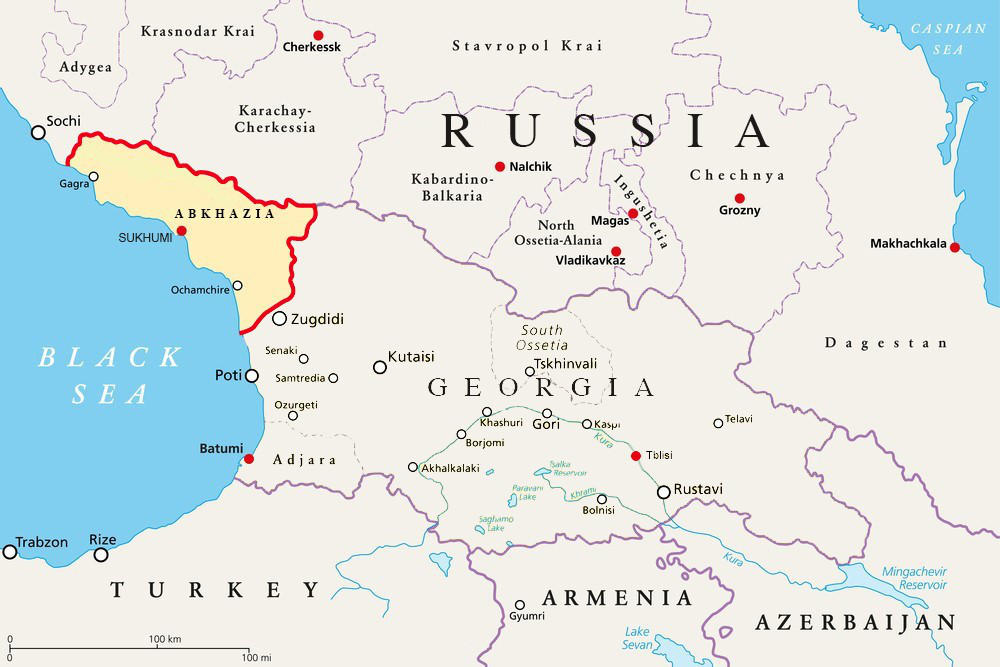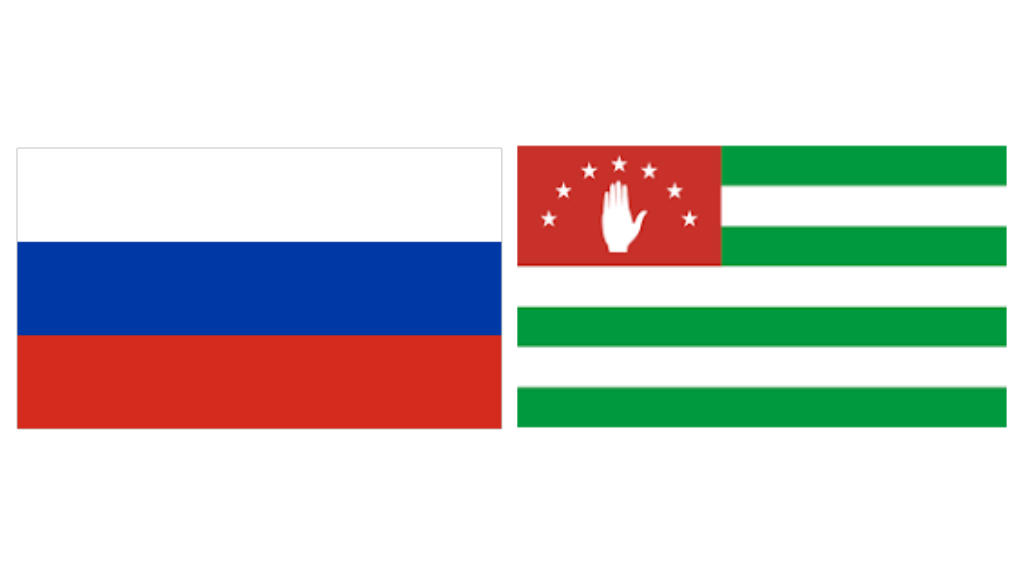
Russia’s Foreign Minister Sergey Lavrov has held bilateral meetings with Sergey Shamba, the Foreign Minister of the Republic of Abkhazia.
Abkhazia is a semi-recognised independent country that was formed in 1993. It had previously been a province of neighbouring Georgia, however following mass civil unrest and Georgian military action against ethnic Abkhazians, Russian troops were called in to restore peace. Abkhazia was then recognised as a separate country by Moscow, and its border with Georgia closed. A second war resulted in 2008, again resolved by Moscow, who now have troops stationed on the Abkhazia-Georgia border.
The status of Abkhazia as an independent state is not universal, with the majority of UN members not recognising the country. Georgia still claims Abkhazia as its territory but has not been in effective administrative control for over 30 years.
Abkhazia has a population of about 250,000. Its capital city is Sukhumi.

Lavrov and Shamba discussed the latest overtures from Georgia, which is undergoing parliamentary elections on October 26. Georgia has moved politically closer to Moscow in recent years, with the Georgian Dream political party, currently ahead in the polls, stating that they would apologize to Abkhazia for the previous conflicts if it wins nationwide elections next month.
That has led to discussions as to whether Abkhazia might eventually be returned to Georgia.
Lavrov has recently said that “They (the Georgian Dream party) have said that they want historical reconciliation. What form this reconciliation takes is up to Abkhazia to decide. If there is interest from all sides in normalizing these relations, we are ready to help.”
It is also possible that Georgia, which has had its application to become part of the European Union delayed almost indefinitely, may yet rejoin the Commonwealth of Independent States (CIS). It left the organisation in 2008 in the aftermath of the Russian-Georgian war, which itself was instigated by Georgian activities in Abkhazia. Both Armenia and Azerbaijan to the south and east are full members and it would help unite pan-Caucasian trade ties.
Russia provides assistance to Abkhazia in ensuring security, socioeconomic progress, and developing its foreign policy and trade. About 40% of Abkhazia’s annual budget is financed by Moscow. Its annual GDP is about US$500 million.
However, earlier this month, Moscow suspended a major tranche of funding for Abkhazia after local leaders refused to implement several pro-Russian policies. That also complicates matters given that Abkhazia is financially dependent on Russia to pay salaries and pensions. Abkhaz Foreign Minister Sergey Shamba also warned that Moscow would switch to charging the region commercial rates for energy, which has historically been heavily discounted.
The best-case scenario for Moscow, Sukhumi and Tblisi would be some form of reconciliation, as Abkhazia would cease to be a drain on Russian resources and Abkhazia could revert back to its traditional and more obvious trade partnership with Georgia and its markets. These include Armenia, Azerbaijan, Turkiye and the potential for Abkhazia to be linked with the International North-South Corridor, which further links east to Central Asia, and south to Iran and South Asia.
Abkhazia’s fertile land and abundance of agricultural products, including tea, tobacco, wine and fruits (especially tangerines), have secured a relative stability in its economy, although trade with Georgia and beyond would significantly improve matters were this to happen. Tourism – mainly from Russia at present – is also a major industry.
Further Reading
Russia – South Ossetia 2024 Bilateral & Geopolitical Relations: Update

 Русский
Русский













